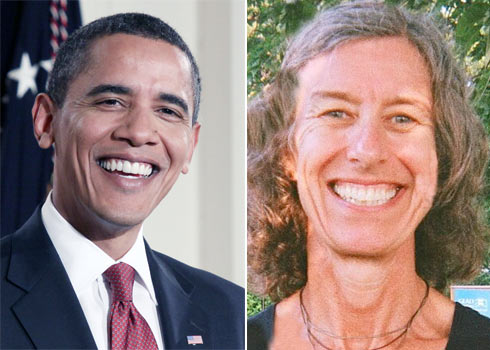The big question following the Obama administration’s announcement that it would not argue in support of the Defense of Marriage Act is whether Congress (or individual members of the House or Senate) would step in to defend the law themselves.
Lee Swislow, executive director of Gay & Lesbian Advocates & Defenders, thinks a member of Congress will get involved somehow.
“We expect there will be a defense coming from Congress,” Swislow told TPM in a phone interview.
What’s not entirely clear is just how that process will play out. While there have been a number of instances where the Justice Department has declined to defend a law, there’s little, if any, precedent for exactly how the process would play out. Members of Congress — including Lamar Smith — have filed amicus briefs in the past, but there don’t appear to be any modern examples of members of Congress actually defending a law in court.
“We don’t totally understand — it’s a process which isn’t used very often,” Swislow said. “We do know that a defense can come from either or both chambers — that’s pretty much the limit of my knowledge.”
She isn’t alone. Obama administration officials also weren’t sure of how exactly things would play out if any member of Congress — or a chamber itself — decided to defend DOMA in DOJ’s absence.
Attorney General Eric Holder’s letter to House Speaker John Boehner (R-OH) said that Justice Department attorneys “will also notify the courts of our interest in providing Congress a full and fair opportunity to participate in the litigation in those cases,” but didn’t lay out a clear process for how that would unfold. The letter said DOJ “will remain parties to the case and continue to represent the interests of the United States throughout the litigation.”
Former Bush-era Justice Department official Hans von Spakovsky wrote on the Heritage Foundation’s blog that members of Congress “consistent with the law of standing, should seek to intervene in the case or file amicus briefs to assure that DOMA gets the vigorous defense that should be afforded to all federal statutes for which reasonable legal arguments may be offered – and which the President is refusing to provide.”
Spakovsky said the court “should give special consideration to such intervening or amicus briefs as statements of the federal government in support of a statute, given the complete failure of the President to carry out his constitutional duty to ‘take care that the laws be faithfully executed.'”
The Alliance Defense Fund, which asked a federal court for permission for Rep. Smith to serve as an intervenor-defendant in the DOMA cases in the past, issued a statement Wednesday that said it “will not waver in its ongoing defense of marriage nationwide.”
“Either the House of Representatives or the Senate have the legal authority to intervene in pending lawsuits to defend the federal DOMA statute,” Senior Legal Counsel Austin R. Nimocks said in a statement.
GLAD’s Swislow said that part of the reason their case was filed in the Second Circuit because there wasn’t a binding precedent there.
“We were very interested in filing a case in which it was ‘clean’ in terms of any statements about the level of scrutiny [for allegations of discrimination against gay and lesbian Americans], so that was definitely part of our strategy,” Swislow said.
Still, Swislow said they were “surprised” to get the letter.
“We have been arguing for years that we think discrimination based on sexual orientation should be subject to heightened scrutiny, and we’re certainly happy that the Justice Department agreed with that position,” Swislow said.
Late Update: In an e-mail to TPM, von Spakovsky writes that the Attorney General is required to notify the Senate Legal Counsel and the General Counsel of the House of Representatives (and others) when DOJ decides not to defend a statute.
“Congress has granted the Senate the right to intervene or appear as amicus curiae in litigation ‘in which the powers and responsibilities of Congress under the Constitution of the United States are placed in issue,'” von Spakovsky wrote.
“And the Supreme Court has been liberal in allowing legislators to intervene where houses of Congress are defending a statute against constitutional attack,” von Spakovsky said. “There are prior instances of Congress successfully intervening such as INS v. Chadha, where Congress defended the constitutionality of a portion of the Immigration and Naturalization Act.”
(The 1983 INS case von Spakovsky referenced is mentioned in this 2001 Georgetown Law paper, which was cited in Holder’s letter to Congressional leadership. While Congress lost the case on its merits, it was able to successfully intervene.)









